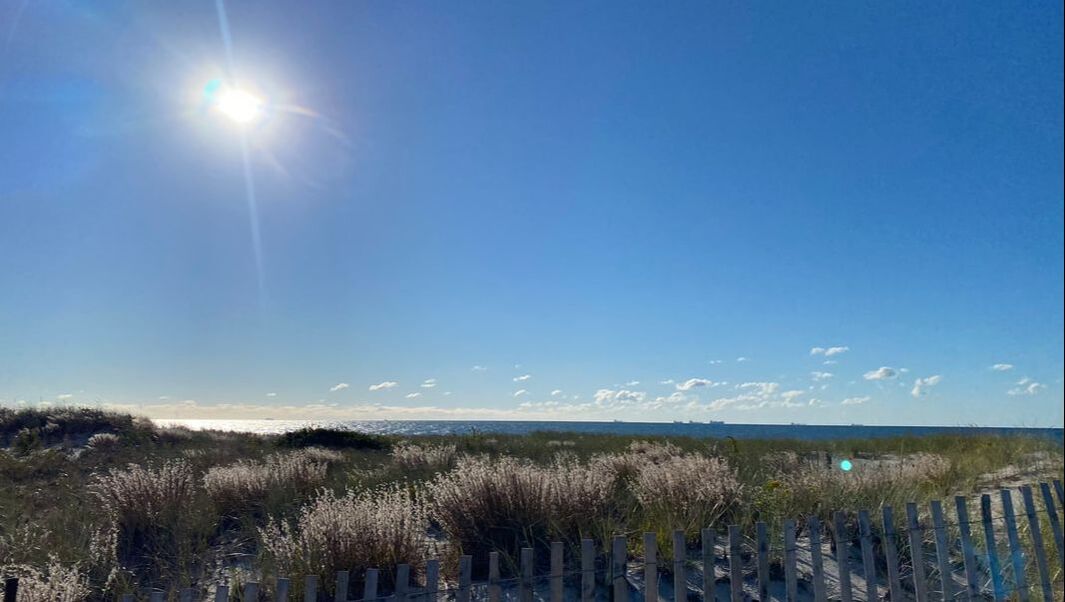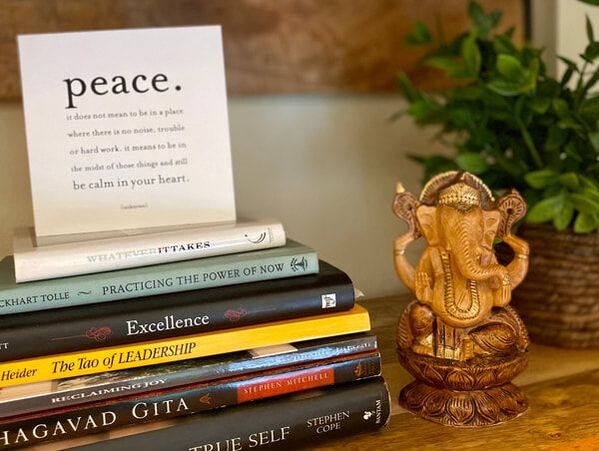|
Summer Self Care
Nourish Body, Mind & Spirit Summer is the perfect time to notice where you need to be "fed", aka, practice self care. Nobody can do this for us. If we don't do this for ourselves, we risk becoming resentful, contracted, and unhappy! We must feed (give to) ourselves in order to feed (give to) others. We are in charge of our own happiness and this includes on going self care. Give yourself permission to do what makes you feel good. You're worth it. Top 3 Sanctuary Picks to Nourish Body, Mind & Spirit: Massage - From therapeutic and deep tissue massage to relaxing massage, it's one of the oldest healing modalities. Massage helps relax muscles, soothe aches and pains, release energy blockages, rejuvenate body, mind and spirit. Facial - Deeply nourish your skin! Next time you book a BWS Signature Facial, consider adding on a custom jelly mask to give your skin a healthy boost! It's great for super hydration or exfoliation, depending on skin type. Great for brightening, tightening and restoring that youthful glow! Shamanic Energy Healing - Energetic healing works holistically on the body, mind and spirit from the inside out. We dive into heart to set intentions for our life that align with present moment; clear obstacles / blockages that keep us stuck; uncover things in shadow; heal and integrate "lost/forgotten" aspects; create action plan to align soul with divine soul blueprint. Powerful for walking your path with truth, peace, joy, love, and grace. >>>View Our Services To Support Your Self Care >>>Book Now I have found understanding how anxiety "works" is a key component in dealing with it. Once we understand it, we are able to "deal" with it effectively. And we are also better able to be compassionate toward ourselves and others.
Here's how I understand the anxiety. 1. Trigger Something (situation) or someone (person) outside our control provokes us. What or who provokes us is the "trigger". I use quotes around the word trigger because when we dive deeper into our subconscious we realize the trigger is actually a belief that no longer serves us. More on that another time! Let's take an example of a trigger: Example: Family Gathering In this case both the gathering (something/situation) and family (someone/person/people) may be at play. Even before we get to the gathering, we start to feel anxiety in the present. Our thoughts and emotions start gaining (usually negative) momentum as we project into the "future" what we "think" will happen based on the "past". Why does this happen (write this one down!)? The mind doesn't know the difference between a real event happening now, or an imagined event, either past or future. Once we are "triggered", what happens next? 2. Behavior - Mental & Emotional We may feel contracted, jittery, confused, angry, fearful, overall, not good! These emotions feed our thoughts. We think things such as, "this is going to be miserable", "I don't want to see this person", etc, etc. We get ourselves all worked up because the thoughts we are having in the present, about the past, we are now projecting into the future. These negative/catastrophic type thoughts that are rooted in past experience cause us to think the future experience will be the same. These thoughts continue to feed our feelings and voila, we are officially in the anxiety loop. There's "nowhere" to go when we are in this loop except deeper down the rabbit hole. We may act out by not going to the gathering at all (avoiding behavior) or create drama (attacking behavior) leading up to or even at the gathering. Note: Other avoidance behaviors include abusing alcohol & drugs, smoking, overworking, overeating, etc. Why do we do this to our self? Wouldn't it make sense to simply learn healthy and effective ways to deal with our "triggers"? Yes! However, until we rewire our brain, the trigger elicits a behavior that feels like a reward/payoff. 3. Payoff In this case of the family gathering, if we take the avoidance track, the "payoff" can be anything from making others wrong, now we are victims -- to the attacking track with a payoff of we are right and defending our point of view. There are many more variations of this and our payoffs. That said, usually the payoff is connected to being right, looking good, staying comfortable, and being in control (AKA Ego). Once again I use quotes around the word payoff because in truth it isn't a true reward. We still haven't faced the root of the anxiety. We have merely put a band aid on it. Is this starting to sound familiar? Now what? Learn how to deal with the anxiety "trigger". Keep in mind "trigger" can also be our thoughts about the never ending to do lists at home, at work...in life as well as comparing ourselves to others. Our triggers vary and are many! How to Deal: 1. Presence / Awareness I use the words presence and awareness interchangeably. For me these words means being aware of what is happening in the present moment without resistance or judgment. Meaning, we accept what we are thinking and feeling, even if we don't like it. We are observing our experience. Until we are aware of and accept this anxiety loop, nothing will change. Once the energy of resistance and judgment is freed up, we consciously choose to focus our attention on dealing with the anxiety loop. The trigger is there, at least for now. Accept it. Now it's time to re-evaluate the payoff. Is it really a payoff? 2. Reassess Ask yourself if avoiding or attacking behavior is really what feels good? Is that how you want to live? Avoiding or attacking? Perhaps there is a better way. Ask yourself if you can be absolutely sure, meaning 100% sure the payoffs are working for you. Spoiler alert: it's likely these payoffs are also directing other areas of your life. If you can find even a .00000001% chance that there is a better way keep reading. 3. Redirect Even a sliver of possibility that there is a better way to manage the anxiety loop is an incredible start. Good for you! Acknowledge yourself for that. In this step you get to redirect your attention on things such as observing your experience, being compassionate with yourself (and others!) and changing your relationship with those payoffs. Meaning, you realize they are not in fact payoffs. In truth these "payoffs" actually keep you trapped in the trigger and therefore the anxiety loop. If you resonate with this, and would like additional support on any of the above, please reach out. I am passionate about showing people how to experience more health, happiness, and freedom to live the life of their dreams. Peaceful, prospering, connected...thriving. Thanks for "listening". We go this! Stephanie >>>Email me here. >>>Book an energy session to clear it! When we are faced with circumstances outside of our control, it may feel like an impossibility to let go.
The paradox? Letting go is exactly what we must "do". I was remined of this last year while moving to my "dream" house. Of course, along with the "dream come true", also comes the rainstorm which reveals leaks, a dryer that decided to break, backordered everything!, and all the other logistics. It's truly small stuff in comparison to life's bigger challenges. One of the ways I "trick" my mind into letting go is by asking myself the below 3 questions. Since inner peace is a way of being many of us want to experience, this exercise works quite well. 1. Do I wish to experience inner peace or conflict? Inner peace, of course! Note: Some of us still like being in conflict...it provides a distraction of sorts and gives us an excuse not to take responsibility for what is and/ or our present life situation. Some of us are in conflict and don't even know it. All have been true for me. It's part of the human condition at times. It's up to us to be aware and then make the choice again and again to accept what is. Once we do accept, all the energy we were using to "resist" is freed up and we are able think clearly and choose a better way... 2. What am I willing to do in order to experience inner peace? Be open to trying things that support a peaceful way of living. There are many things/ tools we can do/ use: books, meditation, a mentor, energy work, prayer, workshops, podcasts... I do all of this and then some :) The point is, I am willing to do what it takes to live a peaceful life. Over time, we may need more or less of these things/ tools based on what we are facing in life. More stressful times = more support. Make sense? 3. Who must I become to experience inner peace? Become a student of inner peace. Know thyself. Use the tools above. Today, right now, begin to practice: acceptance, non-judgment, non-attachment, presence, compassion... and the big one - forgiveness. EXTRA CREDIT: Enjoy the process... yes, all of it. I am always surprised at how quickly my inner state (and therefore my mind) can shift when I am willing to enjoy life. I become re-energized, enthusiastic, and see opportunity everywhere! WE GOT THIS! If you want support, email me. Namaste, Stephanie Release Tension Inside Out
Many ways to do it... Bodywork: Often we don't realize how much tension our bodies hold... until that tension isn't there anymore! Through various modalities like massage, cupping, and stretching, we're able to begin to release some of that stagnant energy that manifests as physical tension in the body. Energy Work: The techniques used during an energy healing session are designed to switch the nervous system out of “fight –flight-freeze” mode into a state of deep relaxation, allowing for both short-term and long-term relief of stress and anxiety. In addition, what we learn during a session can help us re-align our conscious mind (thinking mind) toward what we want to create. Meditation: Focusing on the breath while opening the mind to allow and accept whatever arises sends messages of steadiness and balance to the emotions and nervous system. Over time we learn to put a space between what is happening and how we are "responding" (instead of reacting). >>>Learn More  Feeling unclear, disconnected, maybe even down? Take time for stillness. We live in a non-stop and noisy world. Over time this may drown out our own voice. In stillness lives your connection to yourself, your desires...your truth. One of our favorite ways to access stillness is with meditation. Another way...simply sit in silence and watch nature. |
AuthorArchives
July 2024
Categories
All
|





 RSS Feed
RSS Feed